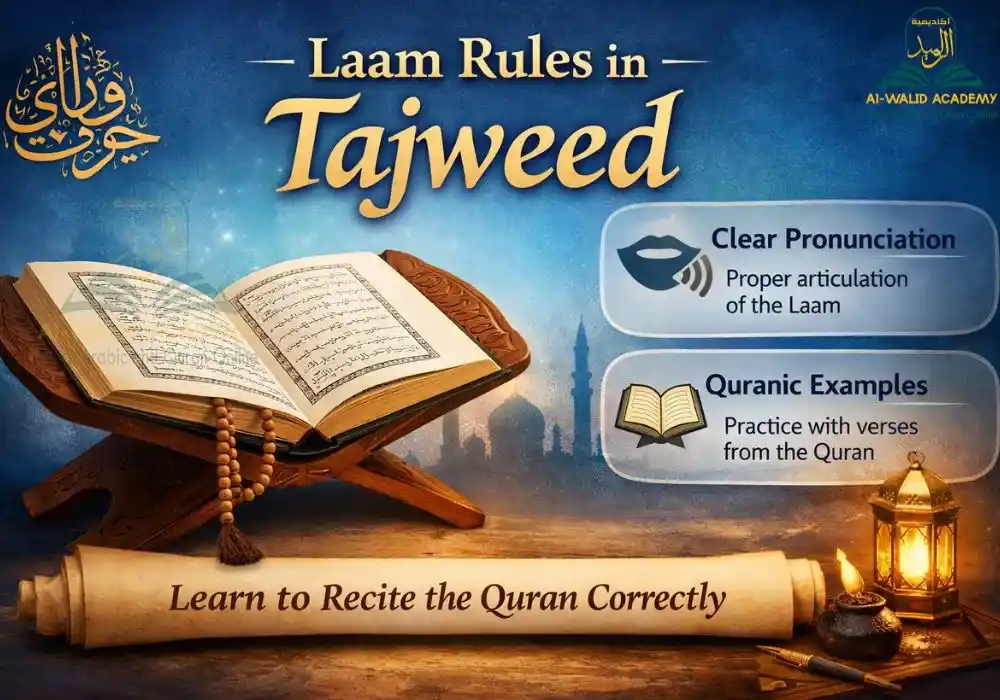Have you ever known that there are forbidden times of Salah?
Salah is the bond between Muslims and Allah; they are ordered to perform five daily prayers; however, they are not permitted to pray at specific times, and this is mentioned in the Prophet Mohammed’s Sunnah.
Muslims are supposed to show obedience to all Islamic rules mentioned in the Holy Quran or the Noble Sunnah.
In this article, you will find a guide on when Muslims can not pray. and the forbidden prayer times, and a lot of topics we will talk about, follow us.
What are the forbidden times of salah?
Prophet Mohamed peace be upon him taught us about the forbidden times of prayer: the Sunrise, the Sunset, and Zawwal. Let us have a deeper view of them and their times.
Sunrise Time
It Starts from the first part of the sun seen in the East.
It Ends when the whole sun is visible and the sunrise is completed to the length of a spear, which is about 15-20 minutes after the sunrise starts.
This time is considered one of the forbidden times of Salah; after that, Muslims can perform their prayers safely.
Zawal Time
It is when the sun is at its highest point (meridian or peak) that the shadow on an object is the shortest in length almost zero because the sun is perpendicular to objects.
Muslims should not start prayer at a time when it is possible to reach Zawwal time during the prayer.
Sunset Time
It starts when the sunlight becomes pale and the sun just reaches the western horizon, it is about 12- 15 minutes before complete sunset, please be sure not to hit this time during your prayer.
It is forbidden to perform Salah at this time until the sun completely sets.
These 3 times were mentioned clearly in the Noble Sunnah as follows:
- It was reported by Uqbah Ibn Amr that there are 3 times during which the Prophet Mohammed prohibited us from praying or burying the deceased, these are sunrise, sun is in its peak, and sunset.(The group except Al Bukhari).
- In another Hadith, the Prophet Mohammed said (according to the report of Abu Said): “There is no prayer after the morning prayer until the sun rises”. (Al Bukhari and Muslim).
Moreover, it is disliked ( Makrooh) to pray after the Asr prayer and Fajr prayer as in this Hadith by Al Bukhari:
- No prayer after two prayers, after Fajr prayer until the sun rises, and after Asr prayer until the sun sets.
Can I pray Fajr 2 minutes before sunrise?
You can pray Fajr if you don’t have anything except 2 minutes before sunrise as you started your prayer after the true dawn and completed it before sunrise to avoid hitting the forbidden times of salah, which means finishing your prayer within these 2 minutes is better than missing it.
However, it is better to adhere to the prayer timings and allow yourself to have plenty of time to perform your prayer with khushoo’, and also to be able to pray Fajr Sunnah, which is 2 rakaat before Fajr prayer.
You can increase your Islamic information by joining the Islamic Studies Course from Al Walid Academy to go deeper in Islam and lay a strong Islamic foundation to benefit yourself and your family.
Can I pray Fajr at 7 am?
It is known that Fajr’s exact timing is from the true dawn until sunrise, which is about 5 am.
However, if you sleep, you can pray Fajr immediately after waking up.
Muslims are ordered to wake up early for Fajr prayer, and they must obey the rule; delaying the prayer without reason or excuse is considered a major sin.
And remember, it is not allowed to perform Prayer during the sunrise.
Your solution to adhere more to the Islamic regulations and know what is halal and what is haram is to join The Best Arabic and Quran Academy, Al Walid Academy, you will find courses that cover all aspects of Islamic knowledge and learning the Arabic language.
Can I pray the missed Fajr with Zuhr?
The basis is adhering to the dedicated times of each prayer, but what if a person is traveling or facing a hardship?
In this case, it is permissible to combine missed Fajr with Duhr, however, this combination should not be a regular practice.
Do you know which Surah to recite after Zuhr prayer?
When can you not pray Asr?
Our Prophet Mohammed, peace be upon him, informed us thatthe time for the Asr prayer lasts till the sun becomes yellow.
Generally, there are 2 times for the Asr prayer:
1- The preferred time: starts from the beginning time of Asr until the sun turns yellow.
2- The necessary time: starts from the time the sun turns yellow until sunset in accordance to the Hadith by Al Bukhari and Muslims where the Prophet said, “ If someone catches up with one raka’a of Asr before the sunset, he has caught up with Asr”.
It will not be considered a sin if the person delays it unintentionally or is forced to delay it as long as he prays before sunset.
How long after sunrise can I pray Fajr? And what about the other prayers?
The main time of fajr is from the real dawn until sunrise, after that, it will be missed and considered Qadaa.
It is not permitted to pray Fajr at sunrise, if you wake up at this time, you have to wait for 15 minutes then you can perform the Fajr prayer, which means if you missed it accidentally, you can pay it after sunrise.
For the other prayers, you must seek accurate timing and avoid praying in the forbidden times of Salah.
This incident is discussed when The Prophet (PBUH) said: I fear that you may miss the prayer, then Bilal said: I will wake you, and then they all rested.
However, Bilal leaned against his camel and slept until the Prophet woke up after sunrise. Then the Prophet said: O Bilal, what about what you said? Bilal replied: I have never been overcome by sleep like that before.
The Prophet said: Indeed, Allah took your souls when He wished and returned them when He wished. O Bilal, get up and call the people to prayer.” They performed wudu, and when the sun had risen higher and became seen and bright, they prayed. (Al Bukhari)
From here: Understanding the Wudu steps in order.
How long before sunset is Makrooh?
It is highlighted in the Noble Sunnah that about 15-20 minutes before sunset is a Makrooh time for prayer, all prayers including Qadaa or Fard.
However, if one misses Asr, he must perform it and become attached to the correct timing later.
When is nafl prayer not allowed
The forbidden time of Salah if it is Nafl is 3 as mentioned by the Prophet Mohamed (PBUH) which are:
- When the dawn breaks until the sun completely rises (after 15 minutes of sunrise)
- Before Zuhr prayer by 15 minutes (the sun is at its peak)
- After Asr prayer until the complete sunset
Any time other than these times, the person can perform Nafl Salah and ask Allah for guidance and protection and increase his connection with HIM Almighty.
Forbidden prayer times
As mentioned, Muslims are banned from praying during 3 main times: sunrise, sunset, and Zawwal.
The prostration of recitation (sajda al tilawa) is permissible to be offered during these times though it is disliked (tanzihan).
Muslims can pray freely at any other time considering the correct timing for each prayer to obtain Allah’s blessings and strengthen their faith.
There are 5 obligatory daily prayers, and also 5 Surahs to Recite Daily, know them now.
References of the Authentic Hadiths for forbidden times of Salah
The Noble Sunnah discussed this confusing issue clearly in Hadiths such as:
It was narrated by Nafi’ in Sahih Al Bukhari that Ibn Umar never offered the Duha prayer except on two occasions:
- Whenever he reached Mecca, and he always used to reach Mecca in the forenoon. He would perform Tawaf around the Ka’ba and then offer two rakaat at the rear of Maqam Ibrahim.
- Whenever he visited Quba, usually every Saturday, when he entered the Mosque, he disliked leaving it without praying. Ibn Umar narrated that Allah’s Prophet (PBUH) used to visit the Mosque of Quba sometimes walking and sometimes riding. And Ibn Umar used to say, “I do only what my companions used to do, and I don’t forbid anybody to pray at any time during the day or night except that one should not intend to pray at sunrise or sunset.”
- In another Hadith by Al Bukhari, Prophet Mohamed (PBUH) said: “No prayer after two prayers, after the Fajr prayer till the sun rises and after the Asr prayer till the sun sets.”
- It was reported by Abdullah Ibn Amr that the Messenger Mohammed (PBUH) was asked about the times of prayers. He replied: The time for the morning prayer (lasts) as long as the first visible part of the rising sun does not appear. The time of the noon prayer is when the sun declines from the zenith. There is no time for the afternoon prayer and the time for the afternoon prayer is so long as the sun does not become pale. Its first visible part does not set, and the time for the evening prayer is that when the sun disappears and lasts until the twilight is no more and the time for the night prayer is up to the midnight.
Conclusion
Prayer is the direct communication between us and Allah, and it is essential to perform each prayer at its specified time.
However, as we are ordered to perform Salah at certain times, we are also ordered to leave it off at other times.
The forbidden times of Salah must be taken into consideration to avoid disobedience; these times are mentioned by the Prophet Mohamed (PBUH) and they are sunrise till complete rising, sunset till complete setting, and zawal when the sun is at the highest point of the horizon.
Let us improve our prayers and feel gratitude, seeking guidance and blessings from Allah Almighty.
FAQ
Why is it forbidden to pray at sunrise?
It is forbidden to pray at sunrise because that time resembles the moment when the sun is worshipped by some non-Muslim communities. To avoid imitation and preserve the uniqueness of Islamic worship, prayer is prohibited during this period.
Why are there forbidden prayer times in Islam?
Forbidden prayer times in Islam are meant to distinguish Islamic practices from those of non-believers and to maintain reverence during cosmic transitions (sunrise, zenith, and sunset). These times are linked to moments when the sun is at specific positions associated with polytheistic rituals.
Forbidden time of Fajr prayer today
The forbidden time after Fajr begins right after performing the Fajr prayer and lasts until the sun fully rises above the horizon (approximately 15–20 minutes after sunrise). During this time, no voluntary prayers should be offered.
Forbidden prayer times Hanafi
According to the Hanafi school, the three forbidden times are:
-
At sunrise.
-
When the sun is at its zenith (midday).
-
At sunset.
No voluntary (nafl) prayers are permitted during these times, except for prayers that must be made up (qada).
Can I pray missed prayers during forbidden times?
Yes, it is permissible to make up missed obligatory prayers (qada) even during forbidden times according to most scholars, as the obligation overrides the prohibition.
How long is the forbidden time after Asr?
The forbidden time after Asr begins right after Asr prayer and continues until the sun sets. During this period, voluntary prayers (nafl) are discouraged, especially as sunset approaches.
What are the exact times of forbidden prayers?
The exact forbidden prayer times vary daily depending on your location and solar positions. Typically:
-
Sunrise: About 15 minutes after it begins.
-
Zenith (Zawal): 5–10 minutes before Dhuhr.
-
Sunset: The last 10–15 minutes before Maghrib.





